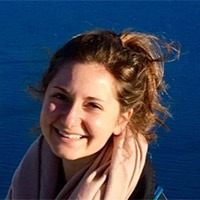UA
Jakarta

Program Facts
Program Type: Arizona Abroad
Credit Type: Transfer Credit
Terms Available: Academic Year , Fall , Spring
GPA: 2.5
Class Eligibility: Junior , Senior , Sophomore
Language of Instruction: English
Application Deadline: Fall: April 1 , Spring: September 15
Coordinator: Nicole Staab
Explore UA Jakarta
Our partner in Jakarta, Sampoerna University, is the only university in Indonesia that offers 4-year, American-style Bachelor's degree programs.
Below are some courses that are already approved for credit at UArizona. Please note that you can choose additional courses - in consultation with your academic advisor - on the partner website via the following link:
Approved Courses
Art
Visual Cultures
Survey in visual cultures from the Renaissance period to the present. Focus on how visual cultures influence society and art/design/media as a means of (visual) communication between the artist/designer and society. The Students then study, aesthetically evaluate, and critically analyse many works of visual culture across format, time period, social and cultural dynamics, and geography. (Usually offered in Fall.)
Business
Analytical Methods for Business
An introduction to fundamental quantitative analysis theories, such as basic probability and descriptive statistics for application in business management, forecasting, and quality control. Pre-requisites: MAC 2233 Calculus for Business, Social & Life Sciences.
Basic Economic Issues
A study on the importance of government; an introduction to macroeconomics; macro policies and trade; industrial organization and products costs; and market structures, including perfect and imperfect competition.
Computer Applications
This is an intermediate level course in computer applications software. Emphasis are in the use and application of word processing, spreadsheet, database, and presentation graphics applications. The course will prominently utilize case studies to develop comprehensive solutions to various types of problems. Integration between applications will be also be emphasized.
Consumer Behavior
Provides students with basic knowledge and understanding of consumers’ buying and consumption processes, both as individuals and as members of a group.
Introduction to Business
This course provides a basic study of business activity and how it relates to our economic society. Topics covered include how businesses are owned, organized, managed and controlled. Course content emphasizes business vocabulary, areas of business specialization, and career opportunities.
Introduction to Finance
An introduction to the basic concepts and principles of finance, including financial markets and institutions, investments, and managerial finance.
Introduction to Human Resources
An introduction to the various functions of human resource management, including compensation and benefits, staffing, recruitment and selection, research, labor relations, training and development, health and safety, planning, mediation and arbitration, the influence of government legislation on industry, and human rights legislation and employment equity.
Lean Startup and Lab
A canvas to give students the essential knowledge needed to either start their own business or join a startup and be a major contributor, in addition to learning about entrepreneurship, the legal aspects of starting a business, and the life and experience of working at a startup. Pre-requisites: MGT 205 Entrepreneurship.
Managerial Accounting
As the last course of the series, this course concludes the study of manufacturing accounting and managerial accounting. Topics covered include financial statement analysis, job order costing, the process cost system, cost behavior, cost- volume-profit analysis, budgeting, profit analysis, responsibility accounting, differential analysis, capital investment analysis and decision-making under uncertainty.
Personal Finance & Wealth Management
Designed to help students understand the impact of individual choices on occupational goals and future earnings potential, which includes topics related to income, money management, spending and credit, as well as saving and investing. Pre-requisites: ACG2011 Principles of Accounting II (3 credits).
Principles of Accounting I
Principles of Accounting I: This course provides an introductory study of the fundamental principles of
recording, summarizing and reporting the financial activities of proprietorships. Must take GBUS 1302 and GBUS 1303 in combination to be equivalent to UA ACCT 200.
Principles of Accounting II
Principles of Accounting II: As the second course of the financial accounting series, this course concludes the study of financial accounting. Topics covered include plant assets, current liabilities, payroll, corporations, partnerships, and cash flow statements. Must take GBUS 1302 and GBUS 1303 in combination to be equivalent to UA ACCT 200.
Research Methods
Introduces the language of research, ethical principles and challenges, and the elements of the research process within quantitative, qualitative, and mixed methods approaches.
Service Marketing
Theoretical foundations and practical application of marketing of services, such as the nature of services, marketing framework and the marketing mix for services, service encounter, human factor and service quality.
Chemistry
General Chemistry I
Lecture: This sequence is for students who have already had high school chemistry. Topics covered include: chemical measurements, stoichiometry, atomic structure periodic table, chemical bonding, inorganic compounds, nomenclature, formula writing, gases, liquids, solids, solutions acid-base chemistry and ionic reactions and some descriptive chemistry of non-metals. To enroll, it is strongly recommended that students have had previous chemistry at the high school or college level. Co-requisite: GSCI1103L. Students must take Lecture and Lab to earn UA CHEM 151 credit.
General Chemistry I Lab
To enroll, it is strongly recommended that students have had previous chemistry at the high school or college level. Co-requisite: GSCI1303. Students must take Lecture and Lab to earn UA CHEM 151 credit.
General Chemistry II
Lecture: This course is to be taken concurrently with GSCI2104L. Topics covered include thermodynamics, kinetics, equilibrium, electrochemistry, coordination chemistry, descriptive chemistry of metals, nuclear chemistry and an introduction to organic chemistry. Students must take GSCI 2304 and GSCI 2104L to earn UA CHEM 152 credit.
General Chemistry II Lab
This course is to be taken concurrently with GSCI 2304. Upon successful completion of this course, the students should be able to use appropriate laboratory equipment to safely perform laboratory experiments that relate to the topics covered in GSCI 2304 or to collect data accurately and to use those data to calculate a reasonable answer or come to a logical conclusion. Students must take GSCI 2304 and GSCI 2104L to earn UA CHEM 152 credit.
Communication
Communication in the Workforce
Designed to develop the communication skills necessary to speak and write clearly in a business environment, including business correspondence, an oral presentation, effective verbal and nonverbal communication, and listening.
Introduction to Speech Communication
This course is designed to provide students with fundamental training and practical experience for researching, organizing, and delivering speeches in public situations. Topics include: audience analysis, speech anxiety, critical listening, and preparation and delivery of informative, persuasive, and other possible types of public speeches in various cultural context with emphasis on academic and scholarly research. Students will also learn to effectively incorporate audio and visual aids/technologies for effective speeches. This is an international/intercultural competency course.
Computer Science
Research Methods
An introduction to research processes, including formulation of research problem, research design, sampling and measurement methods, research proposal writing, literature review, data collection, data processing, data analysis and reporting.
Economics
Principles of Macroeconomics
An introductory course in macroeconomic principles covering basic economic problems and concepts. Topics discussed and analyzed include basic economic problems of unemployment and inflation, as well as fiscal and monetary policies. Students will recognize the role of households, businesses and governments in the market economy and in their own lives. This is a writing credit course with International/Intercultural content.
Education
Community Service Learning (KKN)
The recognition of various aspects of Community Service with emphasis on how community empowerment brings about organizational changes, community revitalization, and understanding of values of diversity and ethics in community.
Engineering
Computer Programming for Engineering Applications
Fundamentals of C, complexity and efficiency analysis, numerical precision and representations, intro to data structures, structured program design, application to solving engineering problems.
Deterministic Operations Research
Linear programming models, solution techniques, sensitivity analysis and duality. The objective is the development of a working knowledge of deterministic operations research techniques, primarily linear programming; logistics network and flow problems: transportation problems, shortest path and vehicle routing problems, maximum flow problems; project and resource management, operations sequencing and resource scheduling. Prerequisite(s): IENG 2302 & IENG 2307. Usually offered: Fall.
Dynamics
Dynamics of particles and rigid bodies as applied to mechanical systems due to kinetics, momentum, centripetal force, impulse, and moment of inertia.
Dynamics of Machines
Analysis of motions and forces in machines, design exercises.
Electrical Circuits & Lab
(3 hrs. lec. and lab.) A fundamental in electrical with electronics focus. Focuses on current and voltage divider; circuit node voltage and mesh current analysis; Thevenin and Norton equivalents; AC circuit; electromagnetic fields; electrical power, transformer, generator and motors; amplifiers and digital circuits; sensors and physical quantities measurements.
Embedded Computer Systems
Boolean algebra, combinational and sequential logic circuits, finite state machines, simple computer architecture, assembly language programming, and real-time computer control. The computer is used as an example of systems engineering design; it is analyzed as a system, not as a collection of components. Prerequisite(s): GNGR 1301 & Circuit (ECE 207). Usually offered: Spring.
Engineering Component Design
Application of failure analysis methods to the design of specific machine components such as shaft, gear sets, bolted/riveted/welded joints, spring and slender/thin-walled structures.
Engineering Experimental Design
Design and analysis of observational and factorial experiments employing numerical and graphical methods. Topics include control charts, probability plots, multiple regression analysis, confidence and prediction intervals and significance tests. Prerequisite(s): IENG 3301. Usually offered: Spring.
Engineering Graphics
Representations and analysis of systems of orthographic projection and graphical methods.
Industrial Engineering Colloquium
A colloquium designed to help students understand what industrial engineers do. Students will interact with speakers and take tours to local companies. The course helps students select course options within the SIE programs and helps focus on possible industrial engineering applications areas. Prerequisite(s): none. Usually offered: Spring.
Instrumentation Laboratory
Basic principles of laboratory practice and instrumentation; statistical measurement theory including probability distributions, finite statistics, uncertainty analysis regression analysis dynamics of measurement systems; transducers and signal conditioning circuits. Experiments using basic laboratory instrumentation on the speed of sound, temperature measurements, and the dynamic response of first and second order systems.
Instrumentation Laboratory
Basic principles of laboratory practice and instrumentation; statistical measurement theory including probability distributions, finite statistics, uncertainty analysis regression analysis dynamics of measurement systems; transducers and signal conditioning circuits. Experiments using basic laboratory instrumentation on the speed of sound, temperature measurements, and the dynamic response of first and second order systems.
Introduction to Systems & Industrial Engineering
System modeling; the elementary constructs and principles of system models including discrete time, discrete-state system theory; finite state machines; modeling components, system coupling, modes, homomorphisms and system experiments (simulation). System design including: requirements, life-cycle, performance measures and cost measures, tradeoffs, alternative design concepts, testing plan, and documentation. Applications and case studies from engineering. Prerequisite(s): GENG 1301 & GMAT 2506. Usually offered: Fall.
Mathematical Foundations of Industrial Engineering
Basics of data structures, transformations, computer methods, their implementation in MATLAB, and their applications in solving engineering problems. Prerequisite(s): ENGR 1303, GMAT 2505 & GPHY 1401 + GPHY 1101. Usually offered: Spring.
MATLAB II
MATLAB programming to handle two-dimensional arrays, manipulation of arrays, plots with special graphics, 3D plots, inline functions, solving a nonlinear equation with one variable, finding the maximum or minimum of a function.
Mechanical Behavior of Engineering Materials
Introduction to engineering solid materials; concepts of strain, stress, equilibrium; material/structural responses to applied loading/deflection; analysis of engineering components, e.g., beams, plates, thin-walled structures, axisymmetric elements; introduction to structural stability.
Mechanics of Materials Lab
Practical session focuses on engineering materials for stress-strain relations, deformation, hardness, strength, fracture, and cyclic fatigue, with instruments, specimens, recording and interpretation of data, and formal engineering report writing.
Mechatronics
This course presents the field of embedded systems through a series of guided self-study modules. Students work individually or in teams of two and complete weekly mini-projects aimed at providing a working knowledge of micro-controller programming, basic digital and analog circuits, and their essential components. Each of the mini-projects is implemented and tested on an electronic breadboard. The course culminates with an open-ended design project integrating the skills developed through the mini-modules.
Numerical Methods
Introduction to linear algebra; solution of engineering problems based upon an integrated approach combining numerical analysis and the use of computers.
Object-Oriented Modeling & Design
Modeling and design of complex systems using all views of the Unified Modeling Language (UML). Most effort will be in the problem domain (defining the problem). Some effort will be in the solution domain (producing hardware or software). Prerequisite(s): ENGR 1303. Usually offered: Fall.
Quality Control & Six S
Quality, improvement and control methods with applications in design, development, manufacturing, delivery and service. Topics include modern quality management philosophies, engineering/statistical methods (including process control, control charts, process capability studies, loss functions, and experimentation for improvement) and TQM topics (customer driven quality, teaming, Malcolm Baldrige, and ISO 9000). Prerequisite(s): IENG 3301. Usually offered: Fall.
Senior Capstone I
Project-based designing to solve practical, industrial problems using engineering design process.
Senior Capstone I
A culminating experience for majors involving a substantive project that demonstrates a synthesis of learning accumulated in the major, including broadly comprehensive knowledge of the discipline and its methodologies. IENG 4305 and IENG 4306 must be taken in consecutive semesters. Prerequisite(s): Senior standing. Usually offered: Fall & Spring.
Senior Capstone II
Extension of Senior Capstone I (MECH 4304). The projection of the planned designed.
Senior Capstone II
A culminating experience for majors involving a substantive project that demonstrates a synthesis of learning accumulated in the major, including broadly comprehensive knowledge of the discipline and its methodologies. IENG 4305 and IENG 4306 must be taken in consecutive semesters. Prerequisite(s): IENG 4398. Usually offered: Fall & Spring.
Senior Mechanical Laboratory
Experimental investigations involving thermal power and mechanical systems such as fluid machinery, heat-exchanger, rotating equipment, and piping system.
Simulation Modeling and Analysis
Discrete event simulation, model development, statistical design and analysis of simulation experiments, variance reduction, random variate generation, Monte Carlo simulation. Prerequisite(s): IENG 3301. Usually offered: Fall.
Static
A study of equilibrium of a particle, equivalent and resultant force systems, equilibrium, geometric properties of areas and solids, trusses, frames and machines, shear force and bending moments, friction.
System Dynamics Modelling
Discuss about basic modeling aspect of mechanical, electrical, electromechanical, thermal, and fluid system which is related to control system, measurement, and signal processing.
Thermodynamics
Basic laws and examples of engineering applications of macroscopic thermodynamics; equations of state; reversible and irreversible processes; vapor power cycles and gas power cycles.
English
Composition I
GENG1301 is a university parallel course that requires students to learn and practice writing by creating original compositions, exploring basic rhetorical forms such as narration, exposition, and argumentations. Students will also develop research skills and learn to incorporate research material through the writing process. For non-exempt students, placement in GENG1301 is determined by both standard and departmental assessment tests. This is a writing credit course that focuses on extensive writing and revision.
Composition II
Composition II is designed to further develop a student’s communication skills by building on the writing and critical thinking strategies learned in GENG1301. The course requires students to observe the conventions of Standard American English and create documented essays, demonstrating a students’ ability to think critically and communicate analytically. Selected texts supplement the course and provide topics for discussion and assignments. Students use library research methods for primary and secondary sources to produce MLA styledocumented and well-argued research essays and projects. This is a writing credit course.
Introduction to Literature
This introductory course exposes students to the study of literature and a range of widely recognized authors and works. Students will examine and interpret a diverse and representative body of works from genres such as short stories, poetry, creative non-fiction, plays and novels. These selections may include works from many periods and cultures within American, British, and World Literature. Upon successful completion of this course, students will be able to demonstrate an understanding of fundamental concepts and ideas in each of the major literary forms. This is a writing credit course with International/Intercultural content.
Technical Writing
Analysis and presentation of scientific and technical information. Prerequisite(s): GENG 1301 & GENG 1302. Usually offered: Fall
Environmental Science
Introduction to Environmental Science
Study of the physical environment, its relationship with the biosphere, and man’s impact upon natural systems. This course includes ecological systems, Florida environments and geology, pollution and environmental regulations, renewable and nonrenewable resources, and sustainability.
Humanities
Bahasa Indonesia
A review of spoken and written Bahasa Indonesia for correct usage in both academic and non-academic contexts.
Introduction to Philosophy
This course is an introduction to the nature of philosophy, philosophical thinking, major intellectual movements in the history of philosophy, and specific problems in philosophy. The relationship between philosophy, society, religion, and culture will be examined. This is a writing credit course with International/Intercultural content course.
Pancasila & Kewarganegaraan
Pancasila is the foundation, vision, and ideology of the nation that unifies the people of Indonesia with their diversity in ethnicities, religions, races, tribes, and languages. The birth of Pancasila as a common platform arose from years of political, social, and cultural evolution. Pancasila consists of five beliefs: 1) Believe in the one supreme God; 2) Just and civilized humanity; 3) The unity of Indonesia; 4) Democracy led by the wisdom of deliberations among representatives of the people; 5) Social justice for all people of Indonesia.
This course will discuss the history and the philosophical process that leads to the formulation of Pancasila as the principal values of the Republic of Indonesia. In this course, students will learn how to translate the principal values of Pancasila into everyday life.
Mathematics
Calculus & Analytical Geometry I
This is the first of a three-course sequence in calculus. Students may need to a graphing calculator throughout the sequence of courses. Topics include: analytic geometry, functions, limits, continuity, derivatives and their applications, transcendental functions, anti-derivatives, and definite integrals. Certain sections of this course may require the use of a graphing calculator. Recommendation from the Mathematics Department or at least a grade of a “C” in the prerequisite coursework required.
Calculus & Analytical Geometry II
This is the second of a three-course sequence in calculus. Topics include techniques of integration, conics, polar coordinates, indeterminate forms, L’Hopital’s Rule, proper integrals, infinite series, parametric equations, improper integrals, volume, arc length, surface area, work, and other applications of integration. A graphing calculator may be required in certain sections of this course. Recommendation from the Mathematics Department or at least a grade of a “C” in the prerequisite coursework required.
Calculus & Analytical Geometry III
This is the third of a three-course sequence in calculus. Topics include vectors in 3 space, 3-dimensional surfaces, multivariate functions, cylindrical and spherical coordinates, multiple integrals, partial derivatives, vector fields, a graphing calculator may be required in certain sections of this course. Recommendation from the Mathematics Department or at least a grade of a “C” in the prerequisite coursework required.
Calculus for Business, Social & Life Sciences
This is a general education course which includes the college-level skills of calculus such as: functions, graphs, limits, differentiation, integration, average and instantaneous rates of change, and other applications. Recommendation from the Mathematics Department or at least a grade of a “C” in the prerequisite coursework required.
College Algebra
A college algebra course containing topics such as solving, graphing and applying linear and quadratic equations and inequalities; exponential and logarithmic properties; linear, quadratic, rational, absolute value, square root, cubic, and reciprocal functions operations, compositions, and inverses of functions; and systems of equations and inequalities, all with applications throughout the course. Recommendation from the Mathematics Department or at least a grade of a “C” in the prerequisite coursework is required.
Differential Equations
Topics include the classification, solution and application of differential equations, including numerical methods, Laplace transforms, linear systems, and series solutions.
Statistics
A first course in statistical methods including such topics as collecting, grouping, and presenting data; measures of central tendency, position, and variation; theoretical distributions; probability; test of hypotheses; estimation of parameters; and regression and correlation. Use of statistical computer software and/or a scientific calculator (capable of performing 2-variable statistics) will be required. Recommendation of the Mathematics Department or at least a grade of “C” in the prerequisite course is required.
Physics
General Physics with Calculus II
GPHY2406 is part two of a comprehensive physics course outlining electricity, magnetism and optics using analysis in calculus.
Political Science
Introduction to International Relations
A cross national analysis of the concepts of sovereignty, power, security, economic development and national interests in the formulation of foreign policy; the respective roles of the United Nations and the European Union within the context of the growth of Intergovernmental Organizations and Nongovernmental actors such as legislatures and interest groups. Study of the utilization of those concepts on policy of both leading nations and the emerging states with emphasis on both conflictual issues related to both tangible and intangible causes as well as the cooperative aspects of a more globalized and interdependent economic system. This is a writing credit course with International/Intercultural content.
Psychology
General Psychology
General Psychology reviews the scientific principles related to human behavior and mental processes. Topics include the scientific method, neuroscience, learning, memory, and thinking, emotions, motivation, and health, life span development, personality, psychological disorders, and therapies, and social psychology. This is a writing credit course with International/Intercultural content.
Religious Studies
World Religions
This course is a survey and comparison of major world regions with a focus on how global processes, regional interconnections, and local geographic conditions create distinctive regions and landscapes. This is a writing course with International/Intercultural content.
Sociology
Social Problems
This course is an examination of the major social problems found in our changing social environment. More specifically, students will be introduced to a variety of topics which may include inequality based on class, race, ethnicity, education, age; violence in society; the changing family; social problems related to gender and sexual behavior; global social problems. This is a writing credit course with International/Intercultural content.
Location
The booming city of Jakarta features business, tech, and innovation, and the headquarters of the Association of Southeast Asian Nations. Located on the northwestern coast of Java, Jakarta boasts towering skyscrapers, bustling streets, and sweet and spicy food. The modern campus of UA Jakarta in collaboration with Sampoerna University offers an ideal jumping-off point to explore the capital, nearby islands, and other dynamic cities of Southeast Asia.
Excursion possibilities within Indonesia include Borobudur Temple (Java), Gateway of Heaven Temple (Bali), Komodoor Rinca Island (Komodo Dragons), National Parks in Borneo/Kalimantan (Orangutans), Mt. Rinjani (Lombok), and Gili Islands. Outside of Indonesia: Kuala Lumpur, Malaysia, and Singapore are accessible by two-hour direct flights. Direct flights are also available to Bangkok, Thailand. A flight from Bali to Darwin, Australia only takes two-and-a-half hours.
Good To Know
LGBTQ+ Equality Index rating: Indonesia rates 14/100 (with 100 being the most equal) on Equaldex’s LGBTQ+ Equality Index.
Global Peace Index rating: Indonesia ranks 53/163 in the Global Peace Index. The lower the score, the more peaceful the country.
Languages Spoken: Bahasa Indonesia
Housing
UA Jakarta offers students an affordable accommodation option right on campus next to the academic buildings. Located in a gated complex, students live with one another, sharing communal responsibilities and the enjoyment of experiencing SU and Jakarta. The housing complex includes tennis courts, a swimming pool, restaurants, a grocery store and a convenience store.
Semester
- Arrive: mid-late August
- Depart: mid-December
Semester Cost
- $50 Study Abroad Application Fee
- Mandatory Geo Blue International Health Insurance at a rate of $3 a day (approximately $360 a semester)
- You pay Main Campus UA Tuition & Fees to study abroad and receive all of the financial aid you use on main campus
- Other estimated costs including but not limited to: housing, transportation (air & local), visa, meals, books and supplies
- UA Study Abroad scholarships are available based on eligibility
Arizona Global scholarships:
Departmental scholarships:
- Check your department's and college's websites for scholarship opportunities, or ask your academic advisor!
- SILLC Global Award Fund
- Honors College study abroad scholarships
External scholarships:
- Gilman Scholarship (for Pell Grant recipients)
- Fund for Education Abroad
Global Tracks indicate courses that have been pre-approved by your major/minor department at a designated Arizona Abroad Location. If your major does not have a Global Track, that’s okay! You can choose from any of the classes in the Academics section (above) in coordination with your academic advisor. Global Tracks at this Arizona Abroad Location include:
- Global Studies
Check out the Global Tracks website to see your options.
Request More Information
Please enter your contact information and a member of the Study Abroad team will contact you.










